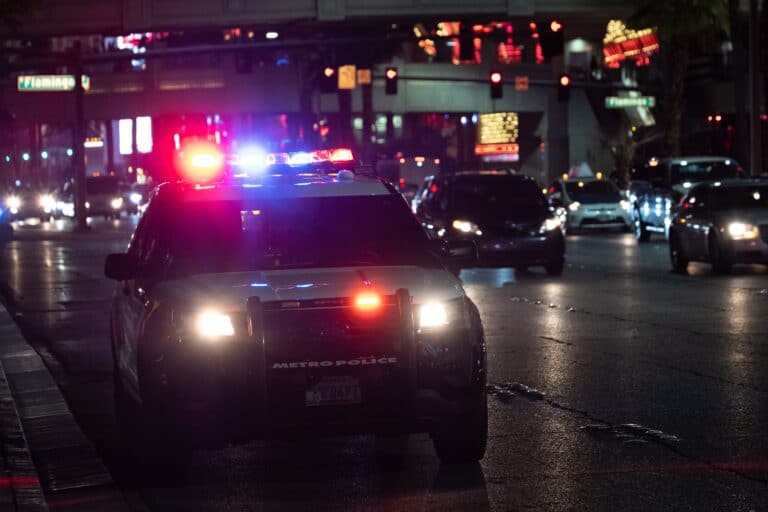Police could and should have taken the Lewiston gunman into custody and seized his weapons weeks before he carried out his attack, according to a new report.
On Friday, an independent commission investigating the failures that preceded the October 25 mass shooting released its findings. The report primarily faulted the Sagadahoc County Sheriff’s Office for failing to take advantage of Maine’s temporary emergency gun confiscation statute, also known as the “Yellow Flag” law, despite having legal grounds to do so. It also accused the office of failing to follow up with the shooter’s family to ensure that he was being cared for and that he no longer had access to weapons.
“The Commission is unanimous in finding that in September 2023, the Sagadahoc County Sheriff’s Office (SCSO) had sufficient probable cause to take Robert Card Jr. into protective custody under Maine’s Yellow Flag law and to remove his firearms and that the SCSO had probable cause to believe that Mr. Card posed a likelihood of serious harm,” Daniel E. Wathen, the commission chair, wrote in the 30-page report.
The report offers the latest insight into the missed opportunities to avert last October’s attacks in Lewiston, which left 18 people dead in what became the deadliest mass shooting in Maine’s history. Its findings confirm that law enforcement officials had all of the necessary legal tools in place to stop the shooter and simply failed to utilize them, with devastating consequences.
The commission’s findings contradict an independent review commissioned by the Sagadahoc County Sheriff’s Office last December, which concluded that its officers’ handling of the shooter was “reasonable under the totality of the circumstances.” That review also found that officers dispatched to conduct wellness checks on the shooter did not have probable cause to take him into custody—a necessary step to initiate a Yellow Flag order—because they were unable to make face-to-face contact with him.
Friday’s report found that face-to-face contact with the shooter was unnecessary to establish probable cause because officers had already received plenty of indications that the shooter was a possible safety risk to himself or others based on reports from other police and military officials who had been in contact with him.
“It has been long established in Maine that a police officer may determine probable cause through the collective knowledge of all law enforcement officers involved in an investigation,” the report found. “In this instance, there was more than sufficient probable cause for the SCSO to begin the Yellow Flag application process in September 2023.”
The Independent Commission to Investigate the Facts of the Tragedy in Lewiston was assembled by Maine Governor Janet Mills (D.) last November. The seven-member commission, made up of several former judges, prosecutors, and mental health specialists, was tasked with identifying the failures that led to the shooting and offering recommendations to prevent something like it from happening in the future. The commission held seven hearings between November and March, where they heard testimony from various law enforcement officials and members of the shooter’s Army Reserve unit who had witnessed his descent into increasingly erratic and violent behavior.
The commission documented each troubling encounter and confirmed that local law enforcement was informed of each incident when they attempted to make contact with the shooter a month before his attack.
“As of September 17, 2023, the SCSO had information that a member of its community with serious mental illness, had been hospitalized for two weeks related to that illness, had access to 10-15 firearms, had assaulted his friend days earlier, had threatened to shoot up the drill center in Saco and other places, and had threatened to ‘get’ his superiors who were responsible for his hospitalization,” the commission’s report said.
Previously released dash camera footage of the September wellness check revealed Sagadahoc County Sheriff’s Seargent Aaron Skolfield considered but ultimately decided against initiating a yellow flag law order against the Lewiston shooter. The footage captured Skolfield stating instead that he preferred to keep his handling of the shooter’s threatening behavior informal and off the record due to his being part of a “big family” in the area.
“I mean, I’ve kept everything off the scanner,” he said. “Like I said, they’re a big family in this area, and I didn’t want to say on the radio that I’m off at a particular address and have them listening on the scanner and go, ‘Okay, what’s going on.’ But I think I can talk to [the shooter’s brother] and say, ‘Hey, I just want to make sure you’ve got his guns.'”
The commission’s report offered a scathing critique of this decision, calling it “an abdication of law enforcement’s responsibility.”
“This decision shifted what is and was a law enforcement responsibility onto civilians who have neither the legal authority to begin the Yellow Flag process nor any legal authority to seize weapons,” the report found. “Even after delegating that responsibility to Mr. Card’s family, the SCSO failed to follow up to ensure that the firearms had been removed from Mr. Card’s custody and safely secured.”
In the wake of the Lewiston shooting, gun-control advocates in Maine have pushed for tightening the state’s firearms restrictions. Maine lawmakers are currently weighing several proposals, including background check requirements for certain private sales and a 72-hour waiting period for commercial sales. The state’s Yellow Flag law has also come under scrutiny from gun-control advocates, who have argued that its procedural hurdles are too rigorous to be effective. They’ve pointed to the Lewiston shooting as evidence of its ineffectiveness.
The commission’s report stopped short of endorsing changes to the law, calling it “cumbersome” at times but noting that it had been used successfully on multiple occasions by most of the state’s Sheriff’s offices before October 25.
“An officer needs to have knowledge of the process, use all the resources the officer has to gather the necessary information, and have the dedication and persistence to follow through with the investigation and the process,” the report found.
Ultimately, the commission found that the biggest failure was that of law enforcement choosing not to follow up with the numerous warnings concerned colleagues and family members of the shooter gave them over a period of several months.
“Robert Card Jr. is solely responsible for his own conduct, and he may have committed a mass shooting even if the guns he possessed in September 2023 were removed from his house,” the report reads. “Nevertheless, there were several opportunities that, if taken, may have changed the course of events.”
The Independent Commission is expected to continue holding hearings and release a final report with further recommendations later this year.
Officials from the Sagadahoc County Sheriff’s Office did not respond to a request for comment.







Only Members can view comments. Become a member today to join the conversation.